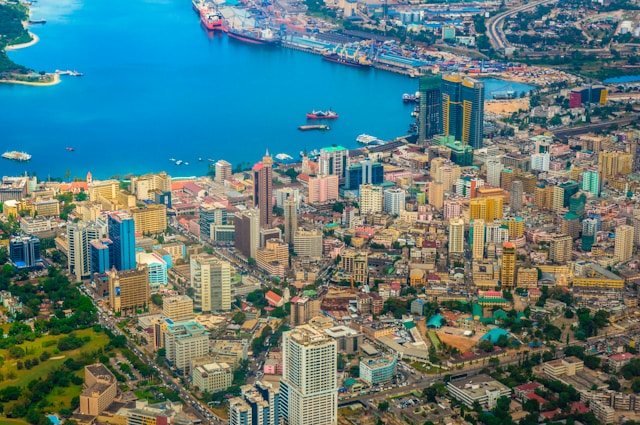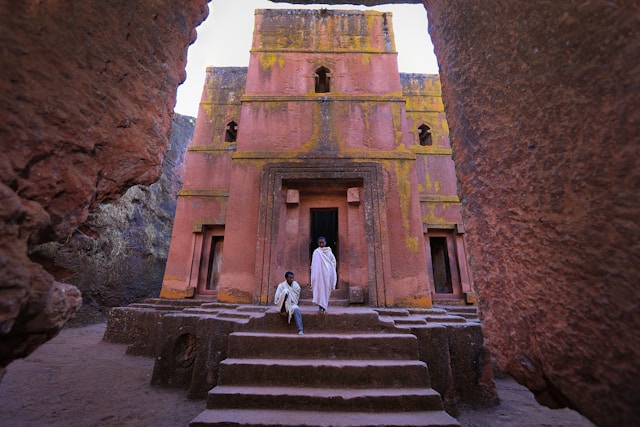Come and experience a little piece of paradise! The Seychelles islands are a perfect tropical getaway, where you can enjoy pristine Zanzibares and coral reefs, fabulous exclusive resorts and sublime Creole cuisine…the perfect antidote to winter!
People & Culture
The Seychellois people are woven from the threads of French, African, Indian, Chinese and Arab roots. Seychellois Creole, a common island language, is the result of positive interactions between the Seychelles peoples over the last 400 years. Creole is the language of the people, though the nation’s official languages are French and English.
The Seychelles are known for their friendly people, and you are likely to notice this hospitality as soon as you set foot on the islands. Local cuisine reflects the islands’ mixed heritage: fish together with a variety of exotic vegetables, herbs, spices and fruits form the basis of Creole cuisine.
In this mainly Catholic country, the principal non-religious festival is Festival Kreol, which is held annually for a week around the end of October. The festival celebrates Creole cuisine, fashion, art, music, puppetry, literature and dance. Masters of these arts hail from the all over the world, and bring along a welcome infusion of colour to this quiet corner of the globe.
How to Get There
Several international airlines offer direct flights to the Seychelles from Europe and Africa, and connecting flights to North America, Australia and the Far East. Note that upon leaving, all travellers must pay a departure tax (usually included in your air ticket).
Visa
Although visas are not required for most visitors to the Seychelles, all visitors are required to travel with passports valid for at least six months beyond their scheduled departure date. Additionally, Immigration officials may request proof of an onward air ticket or passage, pre-booked accommodation, and sufficient funds for your stay. These requirements are subject to change and should be verified prior to travel.
Accommodation
The Seychelles are an upscale destination, so there are no youth hostels and camping is not permitted. Large resorts dot the Seychelles, and offer a full range of amenities like air-conditioning, private bathrooms, swimming pools, and sporting facilities. The islands’ smaller inns and hotels are the ultimate in privacy and seclusion.
The Seychelles is deliberately not a mass-market destination. Accommodations book up quickly in the high season. It is always advisable to book Seychelles tours well in advance, in order to secure a room at the rate and period you desire.
Getting Around
Local flights and charters link many of the Seychelles islands, including Mahe to Praslin, Fregate, Desroches, Bird and the Denis Islands. Schooner ferries have a regular run between Mahe, Praslin and La Digue. You may also charter a boat to get to and around the other islands.
The Seychelles is a small place, and walking is an excellent way to get around. Bus services are only available on Mahe and Praslin. Taxi service is available on Mahe, Praslin and La Digue. Small rental cars (mainly open Jeeps and mini-mokes) are also available for hire in Mahe and Praslin.
Travel Insurance
Always purchase a travel insurance policy that includes emergency evacuation. Additionally, check whether your health insurance includes travel to the Seychelles. If not, purchase a separate travel health insurance policy.
Climate
The Seychelles islands enjoy a sub-tropical climate of warm weather and bright sunshine. The weather holds steady at nearly perfect, year-round. Average temperatures hover around 29ºC (84º F), tempered by a cool sea breeze off the Indian Ocean. The coolest months are July and August (about 28ºC C/82º 82ºF). Hurricanes, cyclones and similar disturbances are absent here.
Between May and September, the weather is cooler, less rainy, and the humidity drops thanks to the effect of trade winds. From November to March, rain is more common, humidity is higher, and temperatures are warmer. Mid-December through mid-January are the rainiest months, but even then, showers generally last only an hour or two.
Health
Before visiting the Seychelles, check with your doctor whether you are up-to-date on routine vaccines, including measles-mumps-rubella (MMR), diphtheria-tetanus-pertussis, varicella (chickenpox), polio, and the flu vaccine. You should also discuss non-routine but recommended vaccines, such as those against hepatitis A, hepatitis B, typhoid, and rabies. If necessary, be sure to protect yourself against the transmission of HIV-AIDS and other STIs.
There is no risk of yellow fever in the Seychelles. However, if you have travelled to a yellow fever-infected country prior to visiting the Seychelles, you will be required to produce your international certificate of vaccination. Exemptions may apply for citizens of some non-endemic nations, including those of Europe, North America, Australia and New Zealand.
Medical help, including hospitals and chemists (pharmacies), are available throughout Mauritius. You should still travel prudently, however: always wear a medical alert bracelet and pack necessary medications, if you suffer from severe allergies or a serious medical condition.
Money
The local currency is the Seychelles Rupee. Foreign currency can be freely exchanged at hotels and banks; never change money on the street. Travellers’ cheques enjoy wide acceptance,e especially at hotels, shops and restaurants frequented by tourists; U.S. Dollars, British Pounds Sterling, and Euros receive the best exchange rates. Major credit cards, including Visa, MasterCard, American Express, and Diners Club, are widely accepted, except at some small establishments.



